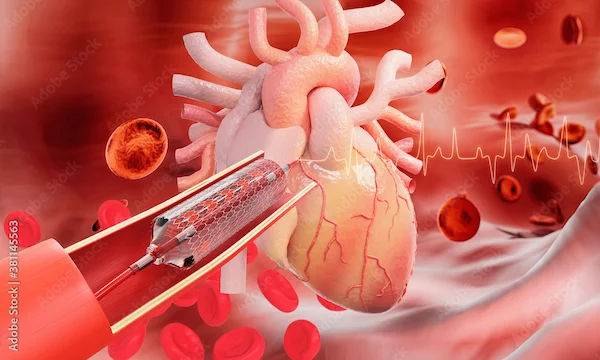Chest Pain: Heart Attack Or Heartburn? How To Tell The Difference
Learn to distinguish between chest pain caused by a heart attack or heartburn. Understand the symptoms, risks, and when to seek medical attention for accurate diagnosis and timely care.

Written by Dr Sonia Bhatt
Last updated on 3rd Jul, 2025
If you’ve ever experienced chest pain, you know how alarming it can be. But when the pain strikes, how do you know if it’s a heart attack, which demands immediate medical attention, or something less serious, like heartburn? Knowing the difference between these two conditions can help you make quick and informed decisions. In this article, we’ll break down the key signs of both, so you can figure out whether you need to rush to the hospital or simply take an antacid.
What is a Heart Attack? Understanding Myocardial Infarction
A heart attack, also known as a myocardial infarction, occurs when the blood flow to part of your heart muscle gets blocked. This usually happens because plaque (a mix of fat, cholesterol, and other substances) builds up in the coronary arteries. If one of these plaques ruptures, it can cause a clot that stops blood from flowing to the heart muscle, which can result in damage or death of the muscle.
What Causes a Heart Attack?
The main cause of heart attacks is atherosclerosis, where plaque slowly builds up in the arteries over time. High cholesterol, high blood pressure, smoking, and diabetes are major risk factors for this condition. When a clot forms in one of the arteries and blocks blood flow, the heart muscle can become deprived of oxygen, causing chest pain and other symptoms.
Symptoms of a Heart Attack You Should Never Ignore
While chest pain is the most obvious symptom, heart attacks can come with a range of other warning signs, including:
Chest Pain or Discomfort: The pain often feels like pressure, tightness, or a squeezing sensation, usually in the centre or left side of the chest. It may last for several minutes, or it might come and go.
Pain in Other Parts of the Body: It’s common for pain to spread from the chest to the shoulders, arms, neck, jaw, or even teeth.
Shortness of Breath: You might feel out of breath, even without chest discomfort.
Additional Symptoms: Other signs can include sweating, nausea, dizziness, or light-headedness. These may occur suddenly or worsen over time.
Women may experience different or subtler symptoms, such as back pain, jaw pain, or nausea. So, it’s important to listen to your body and not rely solely on chest pain as an indicator.
What is Heartburn? Understanding Acid Reflux
Heartburn is a condition that causes a burning sensation in the chest, often after eating. It happens when stomach acid backs up into the oesophagus, causing irritation. Although it can feel like chest pain, heartburn is generally harmless and can usually be treated with simple lifestyle changes or medication.
Why Is It Called Heartburn?
Despite its name, heartburn has nothing to do with the heart. It’s simply a symptom of acid reflux, which occurs when stomach acid flows backwards into the oesophagus. It’s uncomfortable, but it’s not an emergency situation.
Signs and Symptoms of Heartburn
The main symptoms of heartburn include:
A Burning Sensation in the Chest: This often starts just behind the breastbone and can be worse after meals or when lying down.
Sour or Bitter Taste in the Mouth: This occurs when stomach acid reaches the throat and mouth.
Regurgitation: The sensation that food or liquid is coming back up into your mouth, sometimes accompanied by a sour taste.
Difficulty Swallowing: Some people with heartburn have trouble swallowing or feel like food is stuck in their throat.
Unlike heart attacks, heartburn typically occurs after eating, especially after spicy, fatty, or large meals. It’s usually relieved by antacids or by changing your position.
Heart Attack vs Heartburn: How to Tell the Difference
When you’re experiencing chest pain, it can be difficult to tell whether it’s a heart attack or heartburn. Here’s how to distinguish between the two:
Location and Type of Pain: Heart Attack vs Heartburn
Heart Attack: The pain is often described as pressure or tightness in the centre of the chest. It may radiate to the arms, back, neck, jaw, or teeth.
Heartburn: The pain is typically a burning sensation, starting in the upper abdomen or lower chest and moving upwards, often worsened by eating or lying down.
Duration and Triggers: What’s Causing Your Pain?
Heart Attack: The pain lasts for several minutes or more and doesn’t go away with position changes. It can occur during physical activity or at rest, and may not be relieved by antacids.
Heartburn: The discomfort can last for a few hours but often gets better with antacids or by changing your posture. It’s usually triggered by certain foods, large meals, or lying down after eating.
Additional Symptoms: Heart Attack vs Heartburn
Heart Attack: Along with chest pain, symptoms like shortness of breath, sweating, nausea, dizziness, or light-headedness may occur. These are not typical of heartburn.
Heartburn: While heartburn is uncomfortable, it is usually accompanied by regurgitation and a sour taste in the mouth, and it doesn't cause symptoms like sweating or shortness of breath.
When to Seek Medical Help for Chest Pain
If you’re experiencing chest pain and aren’t sure whether it’s heartburn or something more serious, it’s always better to be cautious. Here’s when you should seek medical attention:
Warning Signs of a Heart Attack
If you experience any of the following, seek emergency help immediately:
Severe Chest Pain or Pressure: Especially if it spreads to your arm, jaw, or back.
Shortness of Breath, Sweating, Nausea, or Dizziness: These, combined with chest pain, can indicate a heart attack.
Pain That Doesn’t Improve with Antacids: If the pain doesn’t go away with rest or antacids, it could be something more serious.
How to Tell If It’s Heartburn or Something More Serious
Heartburn often improves with simple treatments like antacids, and it usually isn’t associated with shortness of breath, nausea, or extreme discomfort. If your chest pain doesn’t improve, or if you experience additional symptoms like difficulty breathing, it’s time to seek help from a doctor.
Preventing Heart Attacks and Heartburn: Simple Lifestyle Changes
Making a few key lifestyle adjustments can help prevent both heart attacks and heartburn.
Eat a Healthy Diet: Focus on a heart-healthy diet rich in fruits, vegetables, whole grains, and lean proteins. Avoid fatty, spicy, or acidic foods that can trigger heartburn.
Exercise Regularly: Aim for at least 150 minutes of moderate exercise per week to improve heart health, manage weight, and reduce acid reflux.
Quit Smoking: Smoking contributes to heart disease and worsens acid reflux. Quitting can significantly improve both heart and digestive health.
Manage Stress: Practice stress-reducing techniques like yoga, meditation, or deep breathing to lower blood pressure and reduce heartburn.
These small changes can make a big difference in protecting your heart and managing symptoms of heartburn.
Conclusion
Distinguishing between heartburn and a heart attack can be tricky, but understanding the key differences can help you react quickly and appropriately. If you experience severe chest pain, shortness of breath, or other symptoms like nausea or dizziness, it’s crucial to seek immediate medical help. On the other hand, if your chest discomfort is more likely to be heartburn, lifestyle changes like a healthier diet, regular exercise, and stress management can go a long way in reducing symptoms and improving your overall well-being. If in doubt, consult a doctor and take action to protect your long-term health.
Consult Top Cardiologist
Consult Top Cardiologist

Dr. Nirmal Kolte
Cardiologist
8 Years • MBBS MD (Medicine) DM (Cardiology)
Nashik
Apollo Hospitals Nashik, Nashik
Dr. Praveen Jaiswal
Cardiologist
17 Years • MD(Medicine), DM(Cardiology)
Indore
Apollo Hospitals Vijay Nagar, Indore

Dr. Subir Ghosh
Cardiologist
16 Years • MBBS; MD(MED); DM(Cardio)
Ahmedabad
Apollo Hospitals Gandhinagar, Ahmedabad

Dr. Dilip Singh Rathore
Cardiothoracic and Vascular Surgeon
15 Years • MBBS, MS, M.Ch(CTVS), Gold Medalist : Minimally Invasive Cardiac Surgeon.
Bhopal
Apollo Sage Hospitals, Bhopal
Dr. Vishnu Prasanth
Cardiologist
8 Years • MD, DNB Cardiology
Chennai
Apollo Hospitals Cancer Centre Nandanam, Chennai


_4.webp)

